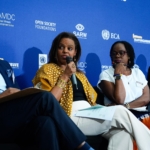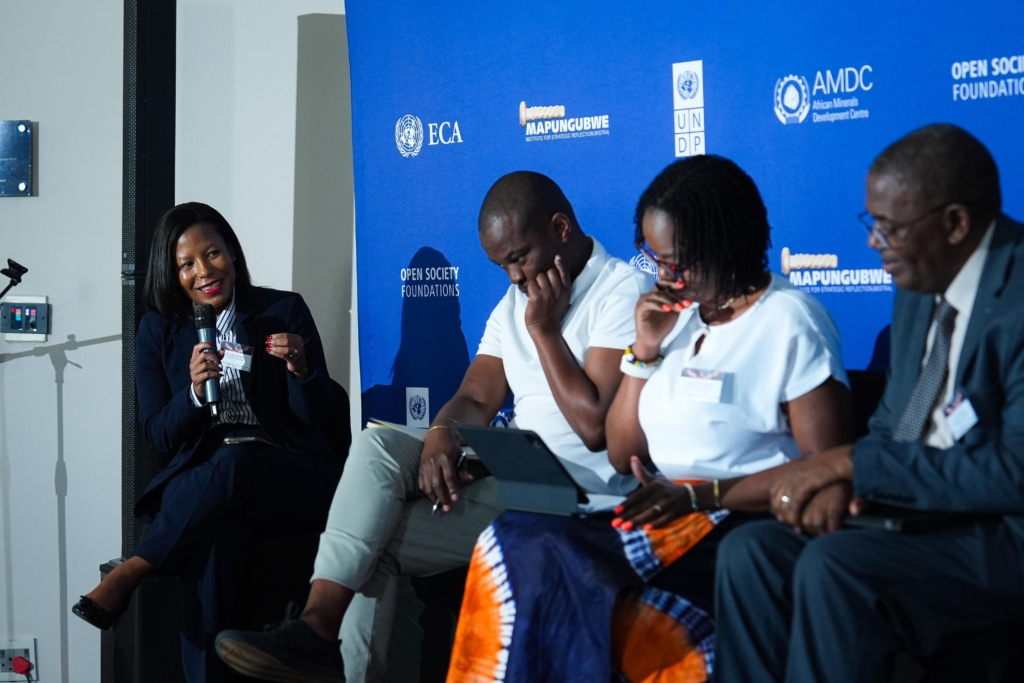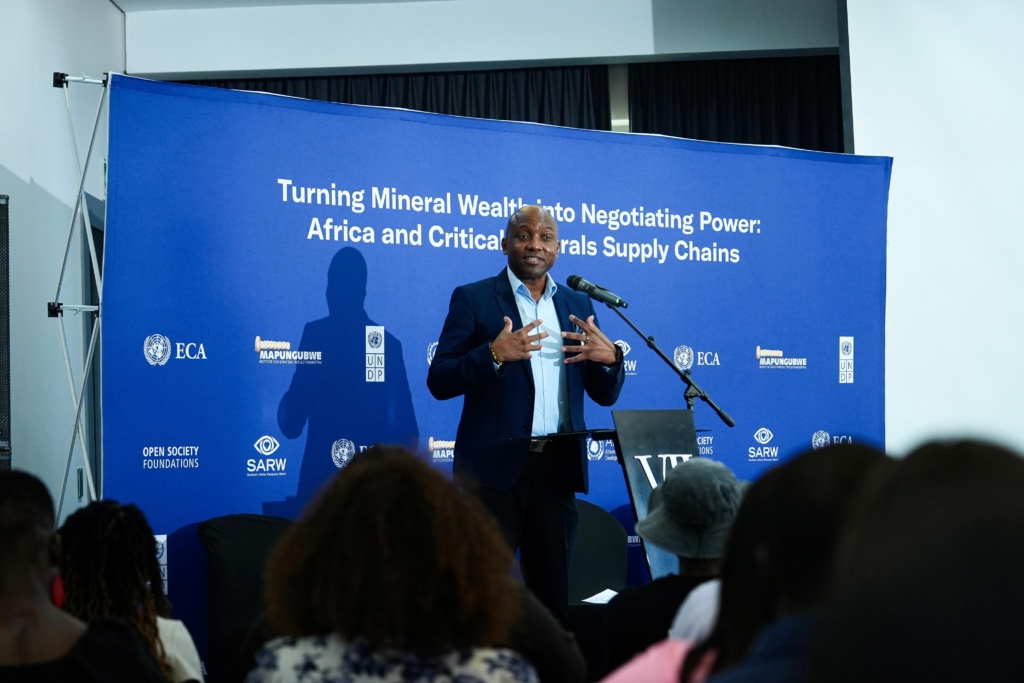
The Open Society Foundations (OSF), United and Nations Development Programme (UNDP), in strategic partnership with the African Minerals Development Centre (AMDC), United Nations Economic Commission for Africa (UNECA), Southern Africa Resource Watch (SARW) and the Mapungubwe Institute for Strategic Reflection, convened a High-Level Dialogue on Critical Minerals under the theme: “Turning Mineral Wealth into Negotiating Power: Africa and Critical Minerals Supply Chains.”
Held in Johannesburg in a hybrid format, on the sidelines of the G20, the dialogue brought together senior African government officials, ministers, development partners, policy experts, civil society, and private-sector leaders to build a unified African position on critical minerals governance.
Speakers highlighted concerns over the growing trend of bilateral agreements between individual African nations and global powers—agreements that may dilute Africa’s collective bargaining power and weaken long-term sovereignty.
Participants advocated for Pan-African solidarity in global mineral negotiations, stronger regional value-chain partnerships, engagement through AU-led and Regional Economic Communities (REC)-aligned frameworks, and safeguarding the stability of mineral-rich countries such as the DRC, recognised as the cornerstone of Africa’s critical minerals landscape.
Leveraging the continent’s resources, participants stressed, requires political will and coordination at the highest level.
Africa has the mineral resources, the strategies (Africa Mining Vision (AMV), African Governance and Management Strategies (AGMS)), and the capabilities (universities to develop skills, the largest populations for future workforce) for regional integration on critical minerals value chains, but implementation lags behind.
The biggest missing piece is political leadership that treats critical minerals as leverage, not commodities, and pools collective power to negotiate and enforce rules for Africans.
No single African economy is large enough to add value to its minerals at scale, making strategic alignment and partnership essential.
As Deprose Muchena, program director at the Open Society Foundations noted: “strengthening Africa’s bargaining power starts with strengthening Africa’s collective negotiation stance. Fragmentation keeps us exporters of raw ore; unity makes us builders of value.”
Participants also proposed the creation of a Green Minerals Fund to invest in Africa’s minerals and economic future.
Such a fund would finance geological mapping, innovation, entrepreneurship, and skills development while ensuring meaningful participation of women and youth across value chains.
Delegates emphasised that Africa’s economic development policies must produce structural transformation that links critical minerals to broader economic growth, tackling unemployment, poverty, and inequality, while prioritising community ownership, human rights, and environmental stewardship over elite consumption.
Global South solidarity was highlighted as crucial. Collective bargaining and advocacy for fair and inclusive value chains can build a coherent, transformative vision that counters global finance, trade, and investment structures designed to extract from the South.
With successive G20 leadership from India, Brazil, and Indonesia reframing social and economic justice imperatives, Africa’s G20 Presidency and the AU’s permanent involvement must safeguard critical mineral beneficiation as a global economic priority.
Participants stressed the urgency for African leaders to respond decisively to Global North initiatives, such as the Global Gateway and US-DRC minerals-for-security deal among others such initiatives
A joint industrial policy anchored on technology was identified as essential to accelerate beneficiation.
Africa must mobilise its energy and creativity for a just energy, technology, and economic transition, ensuring human rights are upheld and profit-driven primitive accumulation avoided.
Africa must proactively invest in technology, negotiate ownership structures, distribution of benefits, and protect communities and rights to shift its position from raw material supplier to industrial power.
Delegates affirmed that Africa’s mineral transformation must be anchored in good governance, transparency, and accountability.
Dignity, they noted, is not bestowed—it is secured through leadership, unity, and self-determination.
Key governance priorities discussed included strengthening mineral governance institutions, combating corruption and illicit financial flows, building state capacity for contract negotiation and monitoring, and developing a new generation of Pan-African leaders committed to continental interests.
Participants agreed that Pan-Africanism remains a strategic pillar for shaping Africa’s economic and political trajectory.
Africa’s mineral wealth must be the backbone of industrialisation, economic diversification, and green development.
Countries were urged to expand backward, forward, and lateral linkages to ensure mining revenues drive manufacturing, innovation, and community development.
Key issues highlighted included persistent gender disparities, the need to empower women and youth in extractives and value addition, investments in STEM (science, technology, engineering, and mathematics) and applied sciences, supporting local manufacturing and grassroots innovators, and moving beyond donor-led development models toward locally driven productivity.
Participants called for stronger efforts to reclaim Africa’s development narrative, noting that stories of Africa’s mineral future are too often shaped externally.
Discussions emphasised the need for robust storytelling, media engagement, citizen participation in governance discourses, and a continental effort to reshape how Africa is portrayed globally and how Africans view their own potential.
In his closing remarks, Brian Kagoro, Managing Director at OSF, delivered a compelling appeal for bold, united leadership.
He recognised the pivotal role of African women in driving strategic convenings across the continent and underscored the urgency of reframing Africa’s development journey.
Kagoro urged the continent to reclaim dignity and agency in development, prioritise Africa’s interests in the critical minerals agenda, build industries, skills, and value chains grounded in African realities, elevate women’s leadership across mining and industrialisation, and shift from “outrage and theory” to practical, production-driven implementation.
“Dignity is never given—it is fought for,” Kagoro affirmed. Africa’s economic renewal, he stressed, requires courage, unity, and a commitment to building industries that serve its own people.

